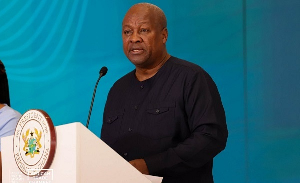Many of the world's philosophers and great thinkers have assaulted Christianity as being irrational, superstitious and absurd. Many have chosen simply to ignore the man at the center of this religion and branded him as the biggest fraud in the history of the world.
Others who believe he existed have also tried to reduce him to just one of the religious leaders and not anything more than that. His death and resurrection has been one of the greatest controversies in history yet his followers believe in the very thing his critics are trying very hard to debunk.
Others have tried to explain it away through various theories. But the historical evidence just can't be discounted. On this first episode on our road to this Easter we would try to examine the trial of the Messiah.
Philosophers and critics who argued that the resurrection of Jesus Christ is either one of the most wicked, vicious, heartless hoaxes ever foisted on the minds of human beings have also try to justify the trial as legal if indeed Jesus of Nazareth, a Jewish prophet who claimed to be the Christ prophesied in the Jewish Scriptures, was arrested, was judged a political criminal, and was crucified.
His followers hold the view that three days after His death and burial, some women who went to His tomb found the body gone. His disciples claimed that God had raised Him from the dead and that He appeared to them various times before ascending into heaven.
With this backdrop, we are now ready to examine the overriding reasons the arrest, trial and conviction of Jesus Christ were illegal;
In his book Criminal Jurisprudence of the Ancient Hebrews, Samuel Mendelsohn states, “The testimony of an accomplice is not permissible by Rabbinic law and no man’s life, nor his liberty, nor his reputation can be endangered by the malice of the one who has confessed himself a criminal.”
Judas was bribed to betray Jesus in the absence of the crowds who favored Him. The plan was to seize Jesus in the dark of night, sentence Him just before sunrise to make everything appear legal, transport Him to Pilate, stir up a mob of people to condemn Him, and crucify Him in the morning before those who supported Him were aware.
Jesus was both arrested and tried by those prejudiced against Him, and was not allowed opportunity to present His case. Further, His judges were the same individuals who bribed Judas hence one cannot say these people were impartial. Since Judas accepted a bribe from a judge, certainly Judas would be considered a criminal. And since Jesus’ judges bribed Judas, they would be considered criminals as well.
This alone should have led to a mistrial!
As stated in Institutions de Moise, by J. Salvador “An accused man was never subjected to private or secret examination, however, per the account of the book of John (John 18:12-14, 19-23) Jesus was examined by Annas in a secret night proceeding meanwhile the Sanhedrin was forbidden from convening between the time of the evening and morning sacrifice.
In the book Jesus before the Sanhedrin, M.M. Lemann states that “no session including a preliminary examination of the court could take place before the offering of the morning sacrifice.” The betrayer was bribed and the trial commences in private and in the evening both actions illegal.
Thirdly, the indictment against Jesus was false. As per the rules of justice the judge could not originate charges but in Jesus’ case the Sanhedrin did so. In a correctly conducted procedure, the evidence of the leading witnesses constituted the charge. But with Jesus, no witnesses and therefore no charges were presented at the outset of the proceedings.
Those in opposition to Jesus, including those who would be in the court, simply arrested Him. They then needed to find witnesses and the found false ones. In his book, The Trial of Jesus Christ, Alexander Taylor Innes reveals that “until they the witnesses spoke, and spoke in the public assembly, the prisoner was scarcely never an accused man. When they spoke, and the evidence of two agreed together, it formed a legal charge, libel or indictment, as well as the evidence for its truth.”
Further, The Sanhedrin court illegally held its trial before sunrise, illegally convened to try a capital offense on a day before an annual Sabbath and The trial concluded in one day. The high priest preliminary examination of Jesus resulted in no evidence. But instead of dismissing the case, the Sanhedrin proceeded to hold an illegal court.
The Jewish Mishna states, “Let a capital offense be tried during the day, but suspend at night because the examination of such a charge is like the diagnosing of a wound in either case a more thorough and searching examination can be made by daylight.” Convicting someone of a crime punishable by death was serious business.
It required proceedings drag to allow the accused defend himself, call witnesses and the accused cross-examined
The jewish Mishna reveals that: “They shall not judge on the eve of the Sabbath, nor on any festival.” Jesus, however, was arrested on Passover evening in A.D. 31, which is the day before the First Day of Unleavened Bread—an annual Holy Day! Isaac Wise, a Jewish Rabbi threw light on this in this fashion “No court of justice in Israel was permitted to hold sessions on the Sabbath or on any of the seven biblical Holy Days.
In cases of capital crime, no trial could be commenced on Friday or the day previous to any Holy Day, because it was not lawful either to adjourn such cases longer than overnight, or to continue them on the Sabbath or Holy Day.”
The Jewish Mishna further reveals that “A criminal case resulting in the acquittal of the accused may terminate the same day on which the trial began. But if a sentence of death is to be pronounced, it cannot be concluded before the following day.” Forcing a trial to last longer than one day allows time for witnesses in support of the accused to come forth. Of course, Jesus’ court did not want any such witnesses to manifest themselves, so they ended it quickly.
In the all these the eye of the messiah was looking at the redemption of a sinful man depraved of any mercy from God. Jesus endured this illegal trial to reconcile the fallen race to God. My dear reader make Jesus your focus this Easter. Shalom!!!
Opinions of Wednesday, 14 March 2018
Columnist: Frank Kumi















